Emergent Readers
Ages 0-5: Focus on picture books.
- Engage through illustrations.
- Simple, repetitive text.
Have you ever wondered how the right book can shape a child's reading journey? The power of age-appropriate literature goes beyond mere entertainment; it lays the groundwork for a lifetime of learning and curiosity. Let’s explore what makes selecting the right books so essential.
This visual represents the key developmental stages in children's reading, highlighting age-appropriate book choices and what each stage helps to build.
Ages 0-5: Focus on picture books.
Ages 5-7: Books with repetitive text.
Ages 7-9: Introduce chapter books.
Ages 9+: Diverse genres.
When it comes to nurturing a love of reading, understanding age-appropriate choices is crucial for young readers. In Australia, the diversity of children's literature reflects our unique cultural landscape, making it essential to select books that resonate with our kids. As a passionate advocate for children’s literature, I believe that each book has the potential to ignite a spark of imagination and foster a lifelong love of reading. But how do we choose the right books?
The journey begins with recognizing the developmental stages of children and aligning their interests with suitable literature. Books should not only entertain but also enhance their cognitive and emotional growth. By carefully selecting stories that speak to their experiences, we can cultivate a deeper connection to reading. For example, the Bank Street College of Education's Children's Book Committee Awards highlight excellent books that meet specific developmental and literary standards, serving as a valuable resource for guiding selections.
Choosing the right books for children can significantly impact their reading journey. It’s not just about finding a title that looks appealing on the shelf; it’s about selecting stories that challenge and engage young minds. Reading at the right level helps build confidence and encourages a sense of accomplishment.
Moreover, when children encounter characters and themes that reflect their own lives, they are more likely to engage deeply with the material. This personal connection can lead to a greater understanding of the world around them and stimulate critical thinking skills. Resources like the Notable Children's Books list from the American Library Association (ALA) provide excellent recommendations for choosing high-quality, age-appropriate literature.
Age-appropriate literature plays a pivotal role in literacy development, as it aligns with the cognitive and emotional stages of young readers. When books match their developmental abilities, children are more inclined to explore new vocabulary and concepts without feeling overwhelmed.
By providing appropriately challenging texts, we can help children develop their reading skills naturally. Each stage of reading builds upon the last, allowing children to grow as readers and thinkers.
Understanding developmental milestones in reading can guide us in selecting the most effective books for our children. Here’s a quick overview of some key stages:
By recognizing these milestones, we can ensure that we provide well-curated selections that not only entertain but also educate. Remember, every child’s reading journey is unique, and being mindful of their developmental stage makes a world of difference in cultivating a love of literature!
We want to know your perspective on selecting age-appropriate literature. How do you choose books for your child? Share your approach with us!
As we wrap up our discussion on choosing age-appropriate literature, it's essential to highlight the profound impact that thoughtful book selections have on young readers. Selecting the right books isn’t just about filling shelves; it’s about creating connections that inspire a love of reading! When children engage with stories that resonate with their experiences, they are more likely to develop a passion for literature that lasts a lifetime.
Books that mirror their realities or introduce them to new worlds can spark curiosity and encourage critical thinking. As parents and educators, we play a pivotal role in guiding their literary journeys. By carefully curating our choices, we can foster not only a love for reading but also an understanding of diverse perspectives and cultures. It's also important to be aware of challenges like book bans and challenges, which can limit access to diverse literature and hinder these vital learning opportunities.
When we provide children with books that address their developmental needs and interests, we empower them to explore their emotions and the world around them. For instance, picture books that focus on feelings can help children articulate their own experiences better. Isn’t that wonderful?
It’s crucial to foster a culture of discussion around the literature we share with children. Open-ended questions can guide conversations that deepen understanding and engagement. Some effective questions include:
These discussions can enhance comprehension and critical thinking skills, helping children connect personally with the material. At Kids Book Guide, we believe that literature can open doors to transformative conversations that enrich young minds.
As parents, your involvement is vital in nurturing a child’s reading journey. Simple practices can make a significant difference, such as:
By taking an active role in your child’s literacy development, you’re not only enhancing their reading skills but also creating cherished memories together. Remember, the goal is to cultivate a lifelong love for reading, and your support is key to achieving that!
At Kids Book Guide, we cherish the insights and experiences of our community. We invite you to share your favorite age-appropriate children's books with us! What stories have captured your child's imagination? Your recommendations can inspire other families and educators as they search for books that resonate with young readers.
We would love to hear about the titles that have sparked joy and curiosity in your home. Whether it’s a beloved classic or a new release, every story has the potential to touch a child’s heart. Feel free to leave your suggestions in the comments below!
Join us in building a vibrant community of readers and educators! By sharing your thoughts and engaging with others, you can contribute to a collective passion for children's literature. Together, we can create an enriching environment that fosters literacy and a love for reading.
Don’t overlook the power of local resources! Community libraries and book clubs offer fantastic opportunities for children to discover new books and connect with peers. Participating in these activities can broaden their literary horizons and deepen their appreciation for reading.
Together, let’s inspire and empower young readers to embrace the magic of stories!
Here is a quick recap of the important points discussed in the article:
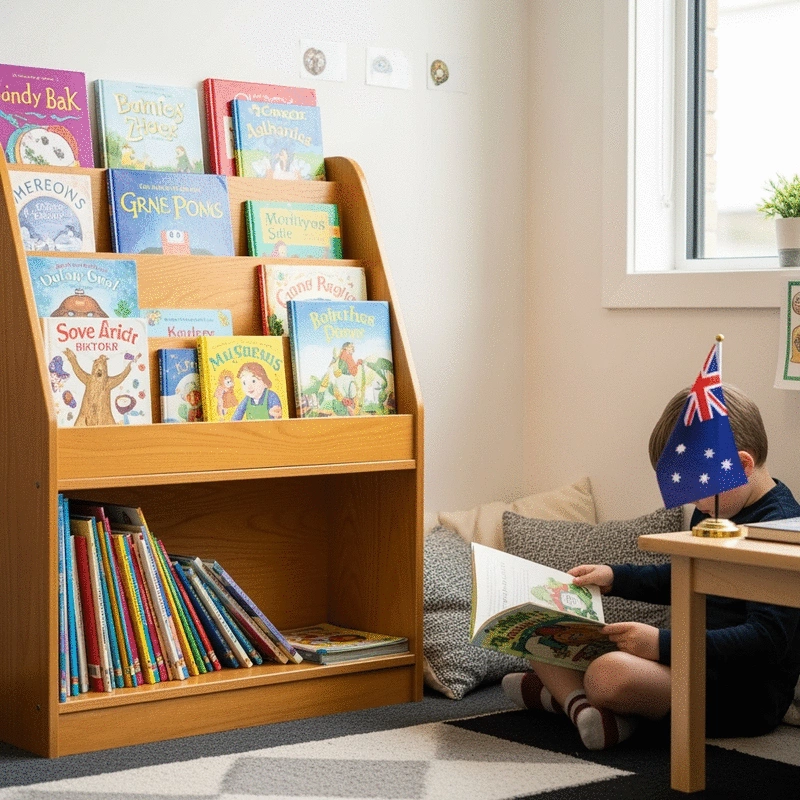
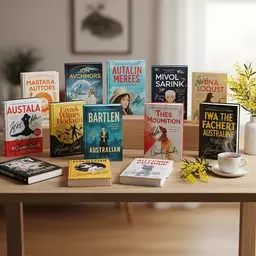 As you navigate the vibrant world of children's literature, think about how a simple signature can t
As you navigate the vibrant world of children's literature, think about how a simple signature can t
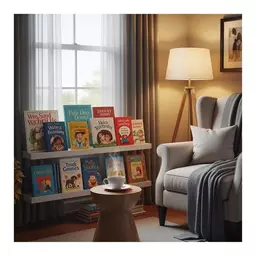 What if the right book could unlock your child's imagination and build their future? Understanding a
What if the right book could unlock your child's imagination and build their future? Understanding a
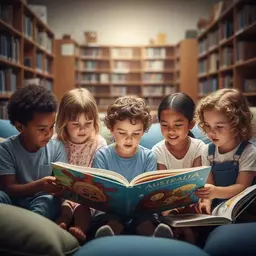 Reading stories isn't just a pastime; it's a powerful catalyst for children's education. Australian
Reading stories isn't just a pastime; it's a powerful catalyst for children's education. Australian
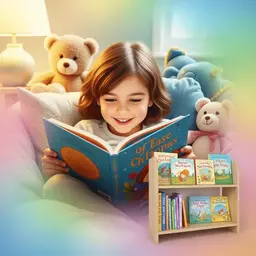 In the words of Aveline Carter, "The journey of discovering books can be just as exciting as reading
In the words of Aveline Carter, "The journey of discovering books can be just as exciting as reading